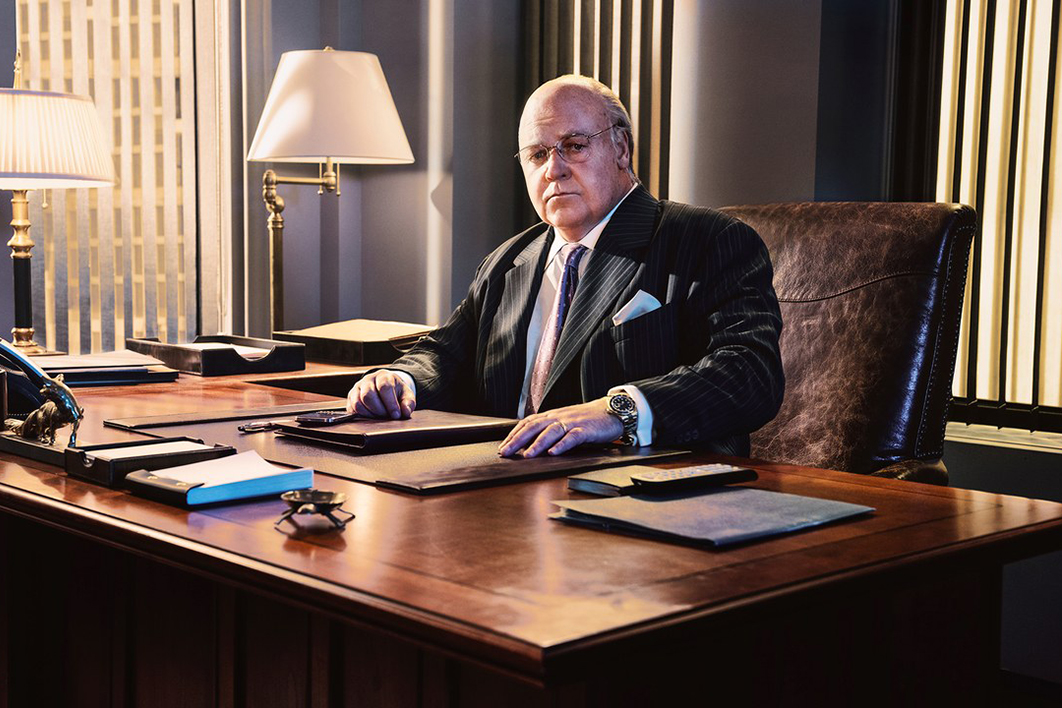A key scene from the first episode of the new Showtime series The Loudest Voice (streaming on Stan) shows Fox News chief Roger Ailes taking a back seat in a strategy meeting. After a presenter delivers an upbeat plan for lifting ratings, Ailes asks, “Who’s our audience?” “Everyone!” is the immediate response. “No,” says Ailes. He drops his voice, and those around him lean closer. “You don’t need everyone,” he says after a pause.
Ailes’s game plan was arrestingly simple. All the other networks were competing with each other for the same demographic: liberals with left-wing leanings. No one was catering to the conservative audience. Cable, he said, was about “the loyalty of the passionate few.”
Not so few, either. The strategy of appealing to those who don’t want so much to be informed as to feel they are informed soon gave the new channel a massive and enduring lead over its rivals. In countless homes around America, Fox became the loudest voice in the room.
According to Gabriel Sherman, who wrote the book on which the series is based, that strategy proved double-edged once Fox News came to play a decisive political role. The voter base targeted — and largely created — by Ailes holds at around 43 per cent of the electorate. For Murdoch, the owner of Fox, that ceiling means huge profits, but for Donald Trump, whose survival depends almost exclusively on that 43 per cent, the hold on an election-winning majority is precarious.
The combative political tactics over which Ailes presided have also spawned counter-offensives like Jon Stewart’s The Daily Show. And one of the paradoxes of The Loudest Voice is that the appeal of any series about Ailes or Fox News will be primarily to the wry, dry, cynical viewers who follow Stewart and his successor Trevor Noah. “High-information” audiences want and need to know what they are up against.
That is what Robert Greenwald’s 2004 documentary Outfoxed set out to show. It started with a polemical statement from David Brock, chief executive of the liberal watchdog Media Matters, about how the prevalence of misinformation in the media environment is “fundamentally undermining democracy.” The film’s most strident figure was Bill O’Reilly, who freely tells guests to “shut up” if he doesn’t like their views.
O’Reilly is not among the dramatis personae of The Loudest Voice. Perhaps scriptwriters Tom McCarthy and Alex Metcalf felt that so forceful a personality would distract attention from Ailes. One of the consequences, though, is that we get a toned-down view of the whole enterprise.
As Ailes, Russell Crowe brings out an introspective dimension. The camera shows his face from the side as he watches the 9/11 attacks unfolding on a bank of monitors, the light from the screens reflected in his glasses. This affects him profoundly, but he must remain in control. He orders cameras to be stationed on the roof and demands that the images be played on a loop, hour after hour, without interruption.
Crowe seems at home inside the layers of prosthesis that transform him into a man of entirely different physiognomy and stature. Following Meryl Streep’s Margaret Thatcher, Gary Oldman’s Churchill and Christian Bale’s Dick Cheney, the uncanny second coming of public figures on our screens is becoming a familiar phenomenon. You have to admire these tours de force, but they are high-risk enterprises.
The actor can become too focused on the physicality of the character. Although Crowe claims he found make-up artist Adrien Morot’s silicone creation “really liberating,” it constrains the performance by becoming its defining element. The heavy jowls, the bright eyes almost drowning in pillows of flesh, the lumbering walk, all communicate an impression of agile intelligence trapped in suffocating encumbrance.
There’s pathos in this. Crowe almost manages to elicit sympathy as he battles to express his own sensuality in painfully awkward scenes with the young woman he has co-opted as his mistress. The real-life Ailes exuded a more dangerous potency. In this portrayal, the vindictive aspects of his behaviour are also muted by the suggestion that he is driven by ingenuous passions for the America he loves and the foreign enemies he hates.
Ailes’s relationship with Rupert Murdoch is central to the series, and although the balance of the two personalities works well in dramatic terms, it again involves a distortion of the power dynamics. Ken LaCorte and John Moody, who held executive positions during Ailes’s tenure at Fox News, testify that he was a controlled and judicious operator, capable of strategic detachment as well as impassioned involvement. Murdoch, too, could switch quickly between these modes.
The series writers have opted to accord all the detachment to Murdoch and all the passion to Ailes. It works effectively to convey a hierarchy of power: Murdoch weaponises a volatile personality to do the dirtier work of propaganda, reining him in only occasionally when the stakes are too high (when Ailes insists, for instance, that all references to Obama include an emphatic enunciation of his middle name, “Hussein”). Simon McBurney as Murdoch captures the behavioural minimalism that goes with the confidence of absolute control. He gets the craggy voice, and the relaxed articulation.
Both actors, though, teeter on the edge of impersonation. Every wrong note in McBurney’s Australian accent (and there are a few) jars. The crumpled features that at times evoke an extraordinary resemblance to the real-life figure also show up awkwardly at certain angles.
Overall, though, the strength of the series is in its casting. Sienna Miller is absolutely believable as Beth Ailes. Naomi Watts alternately sparkles and snaps as Gretchen Carlson, the Fox and Friends host who becomes Ailes’s nemesis. Seth MacFarlane reveals the conflicted psychology of Ailes’s protégé Brian Lewis, who finds himself burdened with a dawning conscience.
As MacFarlane comments, in an interview about how the Fox enterprise comes across in the series as a whole, “It’s hard to hate up close.” And clearly we are not invited to hate Ailes, or Murdoch. Yet Fox itself exudes hate, and perhaps did so more overtly during Ailes’s term than it does now, though the impact on American politics is still playing out. Any effective dramatisation of that needs a much sharper edge. •




